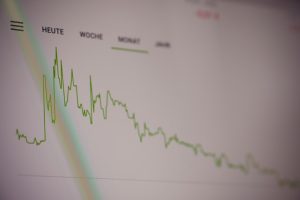Forex trading is a highly competitive and complex market that involves buying and selling currencies to make a profit. One of the most important factors that traders consider while making trading decisions is the spread. A spread is the difference between the bid price and the ask price of a currency pair. A high spread in forex can have a significant impact on a trader’s profit and loss, and understanding what it is and how it works is crucial for any trader.
What is a Spread in Forex Trading?
Before we delve into high spreads, let’s first understand what a spread is in forex trading. In simple terms, a spread is the difference between the bid price and the ask price of a currency pair. The bid price is the price at which a trader can sell a currency pair, while the ask price is the price at which a trader can buy a currency pair. The spread is the cost of trading and is usually measured in pips (percentage in points).
For example, if the bid price of EUR/USD is 1.2000, and the ask price is 1.2005, the spread is 5 pips. In other words, a trader would need to pay 5 pips to open a position in EUR/USD.
What is a High Spread in Forex?
A high spread in forex refers to a situation where the difference between the bid price and the ask price of a currency pair is greater than usual. This can happen due to various factors such as low liquidity, high volatility, or market manipulation. A high spread can have a significant impact on a trader’s profit and loss, especially for scalpers or day traders who make a high volume of trades.
A high spread can make it difficult for traders to enter and exit trades at the desired price. For example, if a trader wants to sell EUR/USD at 1.2000, but the ask price is 1.2005 due to a high spread, they would need to accept a lower selling price, resulting in a loss.
How Does a High Spread Affect Forex Trading?
A high spread can affect forex trading in several ways. First and foremost, it can increase the cost of trading. The higher the spread, the more a trader needs to pay to open and close a position, reducing their overall profit. This is particularly problematic for traders who make a high volume of trades, as the cost of trading can quickly add up.
Secondly, a high spread can make it difficult for traders to enter and exit trades at the desired price. This is especially true for traders who use technical analysis to identify entry and exit points based on price levels. If the spread is too high, it can make it difficult for a trader to execute trades at the desired price, resulting in missed trading opportunities or higher losses.
Finally, a high spread can increase the risk of slippage. Slippage occurs when a trader’s order is executed at a different price than the one they requested. This can happen due to various factors such as low liquidity or high volatility. A high spread can increase the likelihood of slippage, resulting in higher losses for the trader.
How to Deal with High Spreads in Forex Trading?
Dealing with high spreads in forex trading can be challenging, but there are several strategies that traders can use to minimize the impact. One of the most effective strategies is to choose a broker with low spreads. Different brokers have different spreads, and traders should do their research to find a broker that offers competitive spreads.
Another strategy is to avoid trading during periods of low liquidity or high volatility. This is because a high spread is more likely to occur during these periods, making it difficult for traders to execute trades at the desired price. Traders should also be aware of news events that can cause high volatility and adjust their trading strategy accordingly.
Finally, traders can use advanced order types such as limit orders or stop-loss orders to minimize the impact of high spreads. Limit orders allow traders to enter or exit a position at a specific price, while stop-loss orders automatically close a position when the price reaches a certain level. These order types can help traders execute trades at the desired price and reduce the impact of a high spread.
Conclusion
In conclusion, a high spread in forex trading can have a significant impact on a trader’s profit and loss. It can increase the cost of trading, make it difficult to execute trades at the desired price, and increase the risk of slippage. Traders should use strategies such as choosing a broker with low spreads, avoiding trading during periods of low liquidity or high volatility, and using advanced order types to minimize the impact of high spreads. By doing so, traders can improve their chances of success in the competitive and complex world of forex trading.





